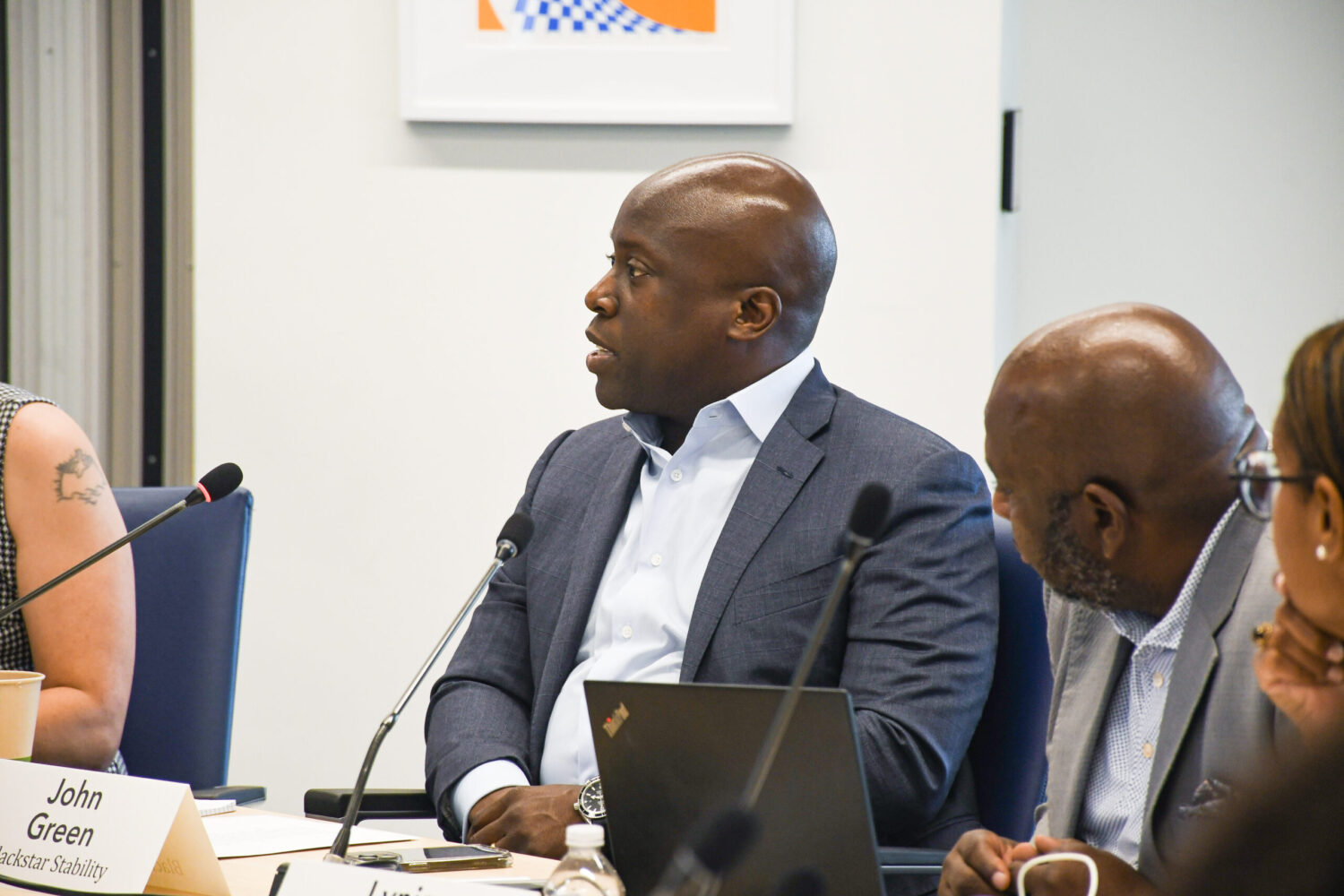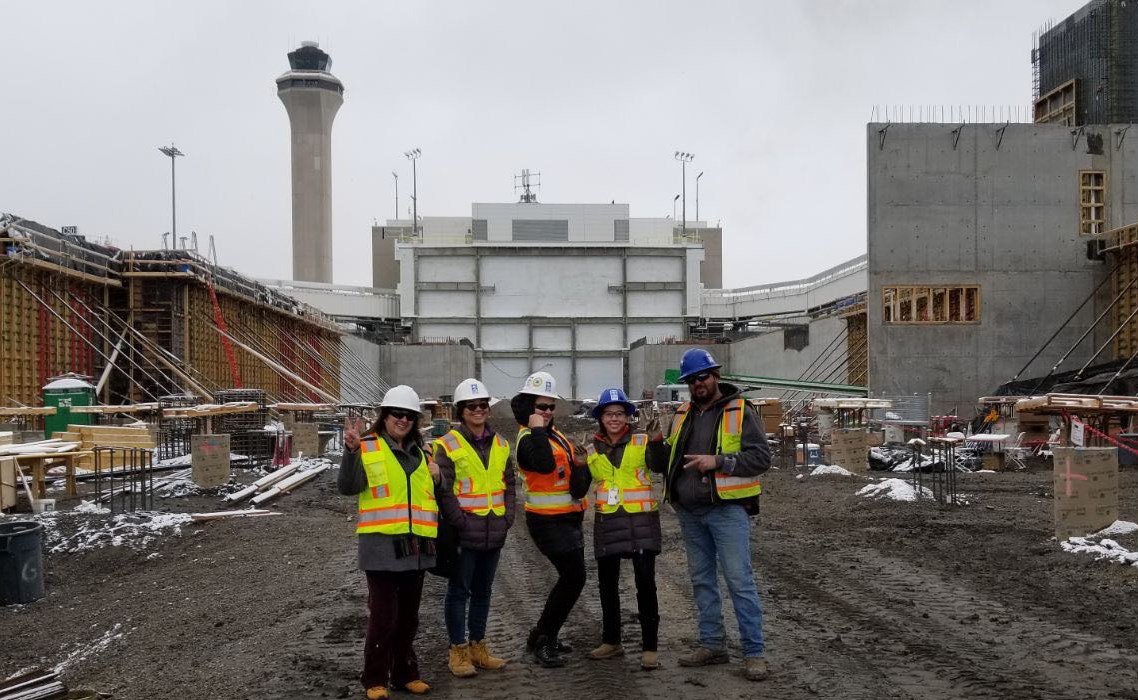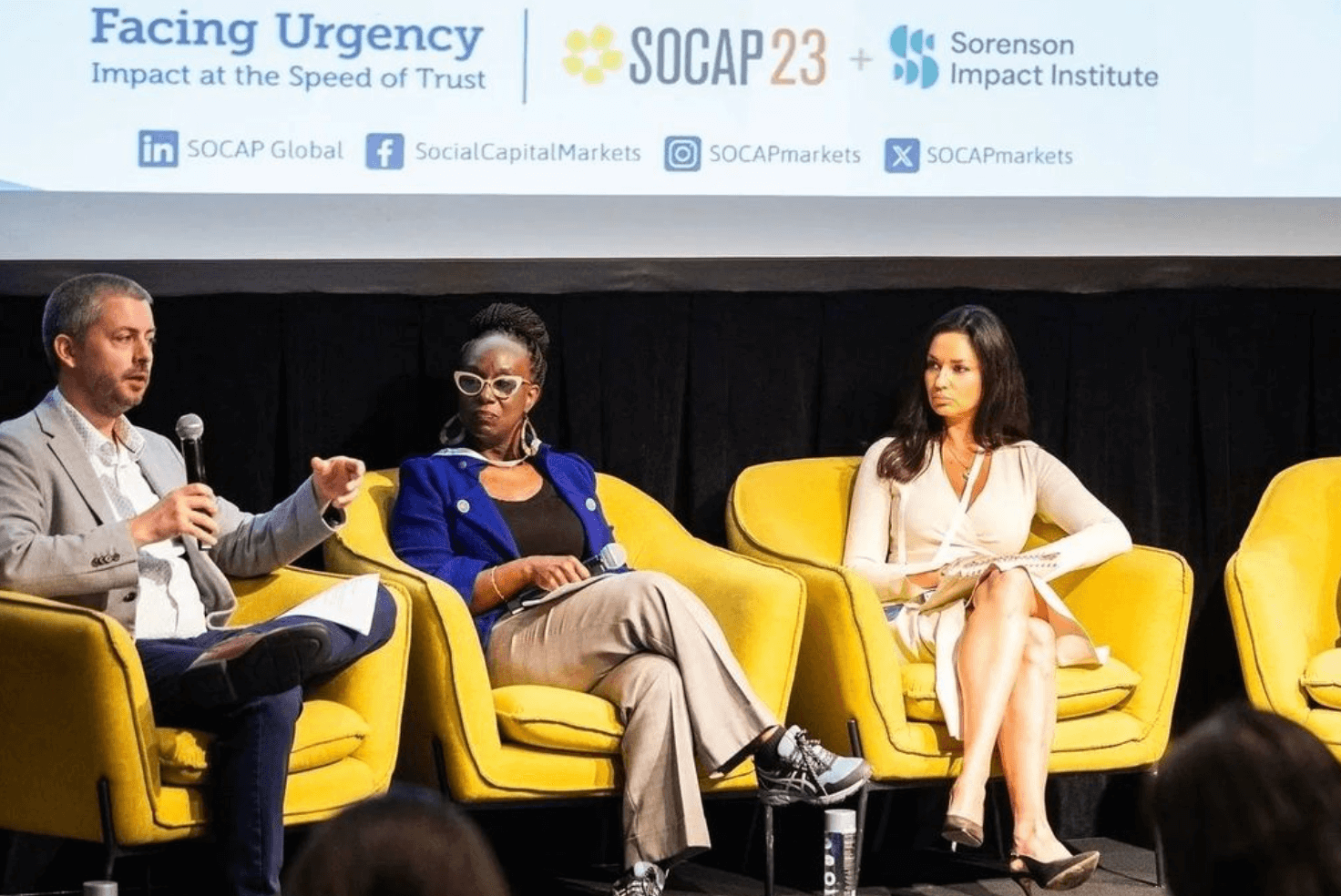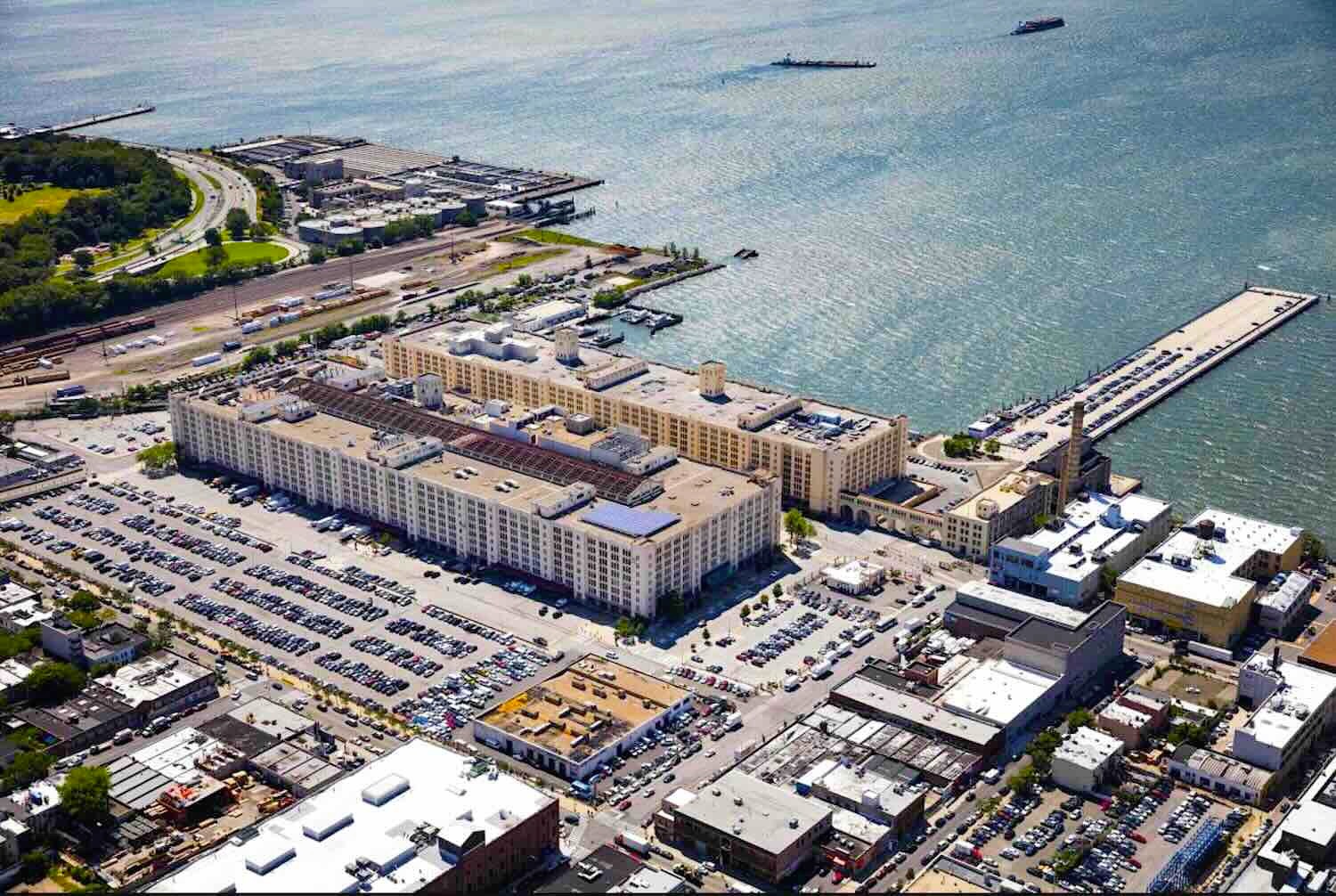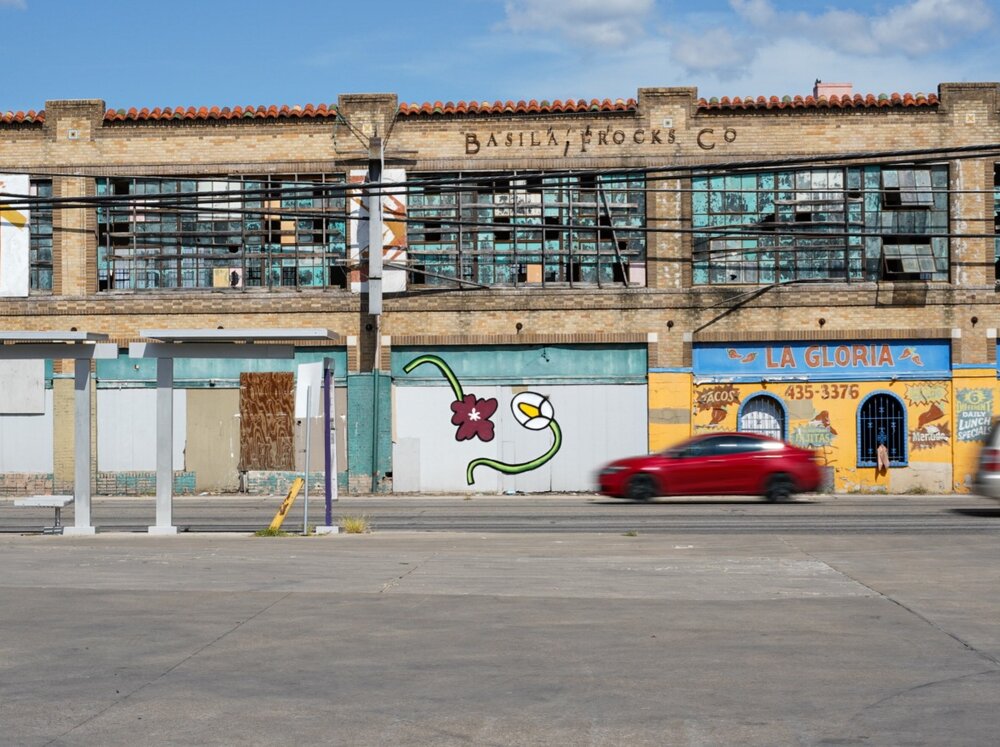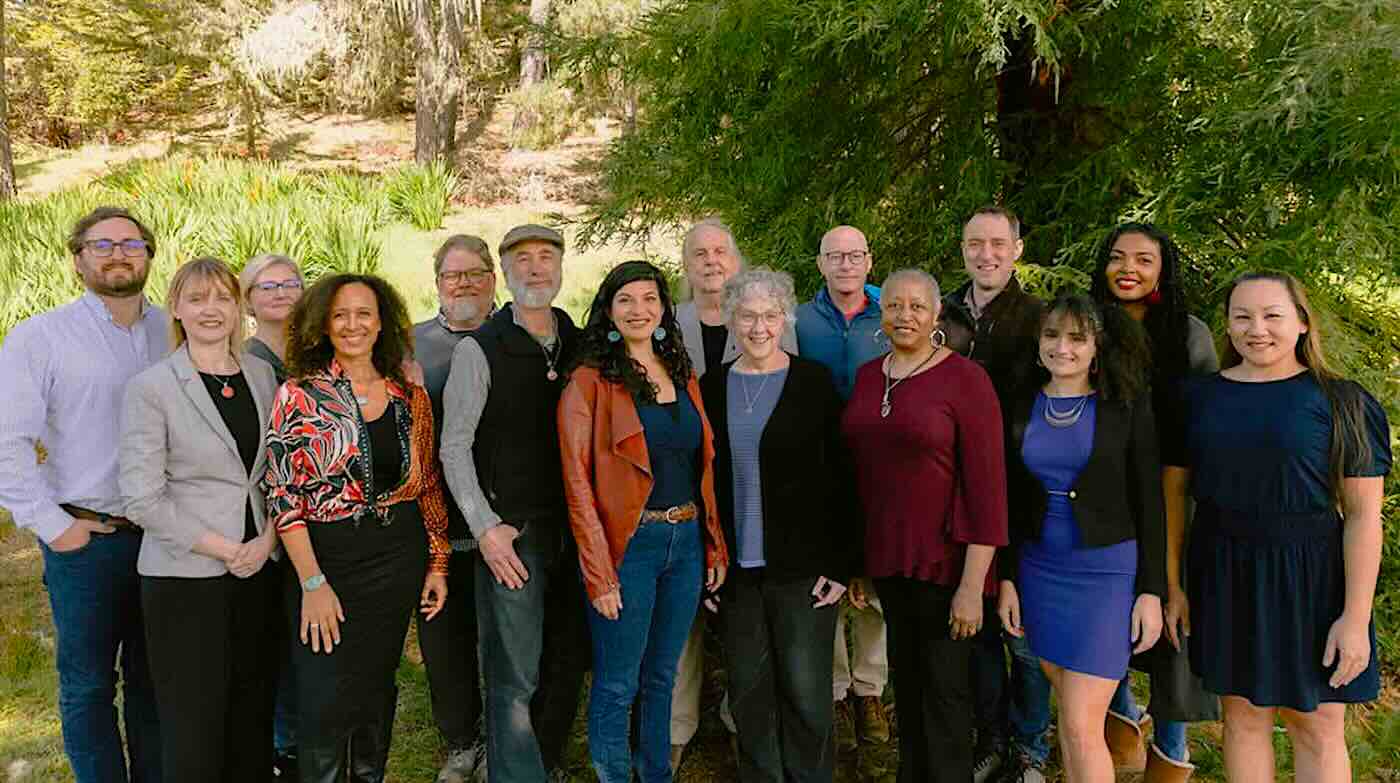ImpactAlpha, August 23 — Over the decades, discriminatory practices in the US real estate industry have blocked many households of color from the kind of affordable mortgages that help families build equity and wealth through homeownership.
Some turned to more predatory forms of financing, including contracts for deeds, or CFDs, in which the seller transfers ownership only when the buyer finishes making payments.
The Blackstar Stability Distressed Debt Fund, based in Washington D.C., has raised $100 million to purchase thousands of single-family homes encumbered by CFDs. Blackstar Stability then refinances the homes with traditional mortgages that offer largely low-income and minority home buyers better interest rates, lower monthly mortgage payments and the ability to build home equity over time. Blackstar has purchased about 200 homes so far.
“In these predatory-like products, the families we work with take on the obligations of ownership, but really don’t enjoy the benefits of outright ownership,” says John Green, a real estate veteran and co-founder of Blackstar Stability. “What happens when we transfer ownership to the families is that the equity becomes theirs right away.”
Blackstar Stability’s strategy for equitable homeownership is part of a new set of models that are using ownership of residential and commercial properties to bridge the racial wealth gap. In Denver, Dearfield Fund for Black Wealth provides interest-free down payment assistance loans to Black families for purchasing their first homes. In North Carolina, Partners in Equity helps primarily Black business owners buy the commercial properties in which they operate. LocalCode Kansas City is pioneering a shared-ownership model that offers local residents access to ownership in commercial real estate developments (see, “On east side of Kansas City, LocalCode adds community ownership to the real estate toolkit”).
The Blackstar Stability Distressed Debt Fund is “unique” and “there’s nobody else that I’ve come across yet specifically attacking contract for deeds,” says Akobe Sandy of the Robert Wood Johnson Foundation, which backed the private equity fund with a $4 million program-related investment (disclosure: Robert Wood Johnson Foundation supports ImpactAlpha’s Muni Impact coverage).
“For us, what was really important is their solution around a very predatory-like product that definitely affects low-income households, but households of color even more when you look at the history of contract for deeds,” Sandy told ImpactAlpha.
Other investors in the Blackstar Stability fund include the Kresge and Packard foundations, Deutsche Bank, World Education Services and Living Cities through its Blended Catalyst Fund.
Through the distressed debt fund, Blackstar is hoping to create access to equitable homeownership for at least 9,000 low-income and minority families in the next five years. The real estate fund aims to transfer more than $125 million in home equity to families and reduce $45 million of mortgage debt for families in its portfolio. Blackstar also plans to save families more than $150 million in interest payments over the life of their loans.
ImpactAlpha: Can you give us a high-level overview of the Blackstar model?
Green: We’re focused on expanding the equitable ownership of affordable single family homes, and that’s in particular the sort of unsubsidized, naturally occurring affordable segment of the market that, broadly, is $100,000 or less but may vary city by city. We work with families who are financing their properties with mortgage alternative forms of seller financing, such as contract for deeds, where they take on the obligations of ownership, but don’t enjoy the benefits of outright ownership.
Much of the extended history of these kinds of products are associated with redlining practices, and so families who had been excluded from traditional mortgage markets by redlining and similar sorts of practices often turn to alternatives like these. We tend to observe them more in places where there are weaker consumer laws at the state level and where there are a lot of lower-cost properties.
We work with the families who occupy those properties, who are the counterparties in those contract for deeds. We extinguish those contracts to replace them with traditional mortgages that we often take back the financing for at fair market terms. Eventually, we sell those mortgages in the secondary markets and recycle the capital.
We are in the very early innings of that execution. We have purchased a constructed portfolio over time that I would characterize as a proof of concept that we’ve been executing, and that the impacts have been pretty dramatic towards that end. We have raised a fund to execute on that strategy, so the premise is very much one that is intended to drive both significant social and risk-adjusted financial returns.
ImpactAlpha: What does the portfolio look like? How are you working with the families to gain access to the equity on the homes?
Green: The portfolio today has roughly 200 properties that we’ve purchased. We’re buying the properties themselves and we tend to buy them at a pretty meaningful discount. The homes that we’re buying are from those contract sellers who still own the property and have a contract to sell to someone who is trying to purchase in a transaction that they may eventually pay off in 20-30 years. Upon purchasing these large pools of these properties, we then go to the families and express to them our intentions and our approach, and then provide an opportunity for them to replace that existing contract with a traditional purchase and sale in which they would become the owners of that property right away, and to finance it with a traditional mortgage.
What happens by virtue of them becoming owners right away is several things: to the extent that there is equity in a property prior to that, if you contrast the two forms of financing; if a CFD is in place, any equity in that property ends up benefitting the seller until the property is finally made off. There are plenty of implications to that, namely that the more equity that accrues, the more incentive a seller has to seek to reclaim a property to the extent that there is a technical default, whether it’s minor or major, there’s just more incentive to reap that equity for themselves. But it also means that some of the other foibles of these contracts can be exploited. The families who occupied these properties under these arrangements have generally no rights to sell the property, to transfer, to lease or sublease these properties. So even if you’re a strong and consistent payer, but desire mobility as most Americans do at some point, you have no capacity to benefit from the investment that you’ve made in this property, which may have been not only real capital, but sweat equity to improve it over time.
What happens when we transfer ownership to the families is that the equity becomes theirs right away. And we transfer all of that. There’s no notion of shared equity or shared appreciation. We don’t seek to participate in that at all. In our judgment, that equity is legitimately the families’.
We’re also reducing the interest rates, almost invariably. we’re often taking families from rates that are several points higher than prevailing mortgage rates, even in the increased interest rate environment that we have now. We’re generally able to reduce interest rates for families, so their monthly payments are coming down.
ImpactAlpha: Can you quantify the impact of the Blackstar model on the families in the portfolio?
Green: In our portfolio today, roughly 85% of the families that we’ve worked with, we’ve transferred equity to and that equity on average has been in excess of $40,000 per family, which represents a more than 20x increase versus their net assets. We measure versus net assets because many of these families have liabilities that would make their net worth negative. Monthly principal and interest payments have come down on average by about 30%.
In those instances where there’s no equity in the properties to transfer, we actually set the mortgages in a way that we absorb the negative equity. So if a property is underwater, we’re not creating a mortgage that leaves that family underwater. We absorb that by reducing the principal balance. For the roughly 12% of families that we’ve worked with where that’s been the case, we’ve reduced their principal balances on average by a quarter.
And then another thing I would point to is the sort of penalties and arrearages that often accrue in these arrangements. If you think about the revenue model and tactics and practices that often are employed in these sorts of products, the penalties are often applied in a way that may rival the sort of payday lending industry, where the penalties are very much an intentional aspect of the revenue model. And so that has been the case for roughly a third of the families that we’ve worked with. Roughly 40% of the families had penalties that we’ve forgiven. On average, that’s been about 3X their net assets. So these penalties themselves were a real hurdle to these families ever becoming homeowners.
ImpactAlpha: What does the conversion process look like? How long are you holding the properties until that process is complete?
Green: The goal for us is to convert the families as quickly as possible and that’s largely a function of their responsiveness and their capacity to get through the mortgage process. So when we acquire a pool of properties, we are introducing ourselves, the program and the premise right away and trying to invite as many folks to engage in that process as possible. I would say for the folks who move early, who are engaged, who are most motivated and diligent in that process, they’re often converted in the first two to three months. Many people find themselves in a position where they need assistance and support in order to be able to complete that process, which may be a six to 12 months proposition.
Others may require intermediate steps to be able to actually be in a position to secure a mortgage, where there’s something else that needs to be addressed, whether it’s in their earnings, their credit, or getting back on track in terms of payments. But on average, it’s been on the order of plus-minus a year for the folks who have been converted in this initial portfolio. The anticipation, broadly, is that there’s roughly a two years cycle of conversions and then the sort of seasoning of those loans prior to selling in the secondary market. And over time, we’ll find ways to compress that.
ImpactAlpha: Why is Blackstar targeting the predatory mortgage industry as a means to build wealth for low-income and Black and Brown homeowners?
Green: These sorts of instruments, and in particular, the contracts for deeds that are in our crosshairs, have existed in this country for well over a century and they have been largely untouched by policy or market interventions that meaningfully address them. Today, we think that there’s more than $200 billion of this sort of product that’s out there. We think that more than four million Americans are affected by contract for deeds alone, disproportionately in low-income and minority communities. When you look at the mortgage alternative space more broadly, the numbers are more than twice that.
This interview has been condensed and lightly edited for clarity.

